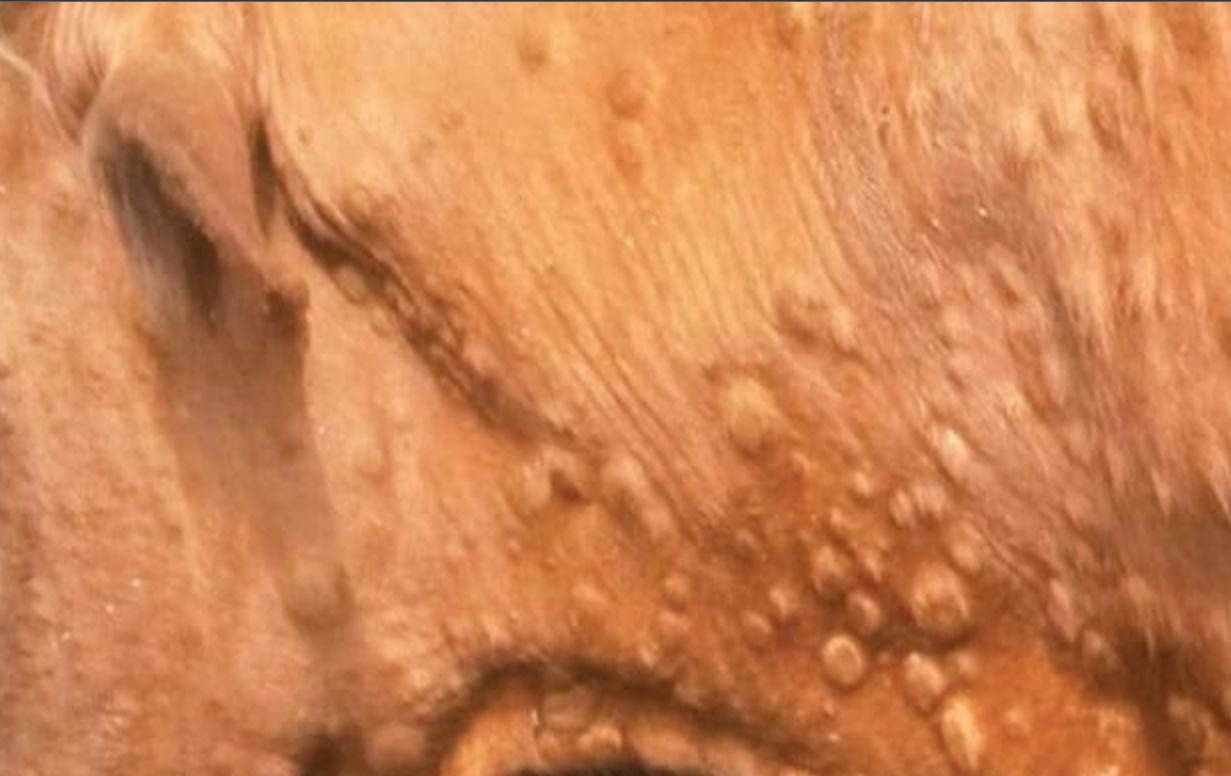PESHAWAR: Around 13856 cases of Lumpy Skin Disease of livestock has been reported in Khyber Pakhtunkhwa as the infection increased due to arrival of sacrificial animals from different parts of the country.
An official of Livestock Department told APP that around 631 deaths of animals have been reported due to prevailing disease in different parts of the province.
The Livestock department, he added, has vaccinated 208252 number of animals and the drive is in progress for protection of animals.
The department has deployed teams in different cattle markets for monitoring of animals and for spraying of insecticides, the official added.
Similarly, check posts have been established at all the entry points of the province to check all the coming animals.
He urged the cattle owners to ensure cleanliness and use mosquito repellent as safety measure for protection of animals from disease.
In case of illness of any animal, isolate it and inform Livestock officials for forthwith starting treatment.
He also clarified that Lumpy Skin is not a zoonotic disease and there is no chances of transmission of disease from animals to humans:
PS: These days people in Sindh and Punjab are opting for chicken or mutton instead of beef meat fearing that Lumpy Skin Disease might make them sick.
Many consumers even stopped buying cow milk. News Pakistan.tv interviewed Dr. Nazeer Hussain Kalhoro Director General Livestock Sindh, to decipher this enigma apropos Lumpy Skin Disease.
According to Dr. Kalhoro humanity has known about the existence of Lumpy Skin Disease for a century now.
And there is no evidence that ever a human being got infected.
He told that mostly the disease spread by means of mosquitoes that bite infected cow and transmit the disease to another cow.
Dr. Kalhoro pointed out that even buffaloes, goats and sheep do not get infected due to mosquito bites.
He further informed that due to extensive vaccination carried out by the governments the spread of the disease has been contained#NewsPakistanTV
Newspakistan.tv | YouTube Channel











